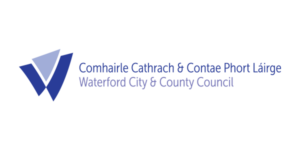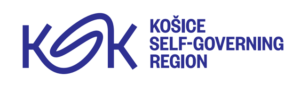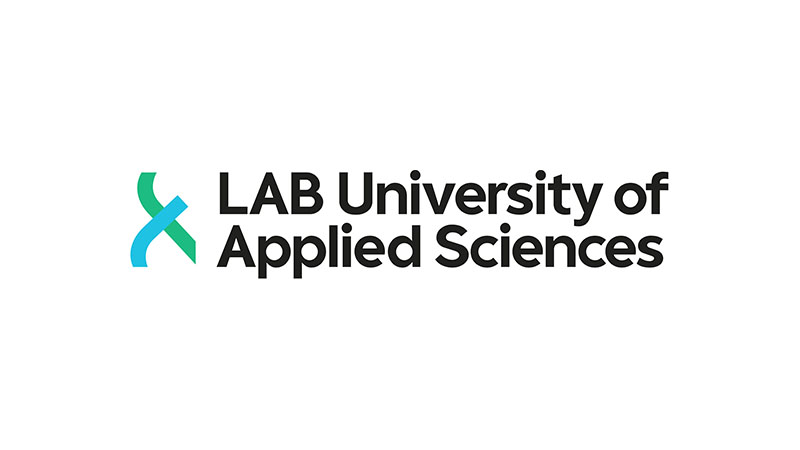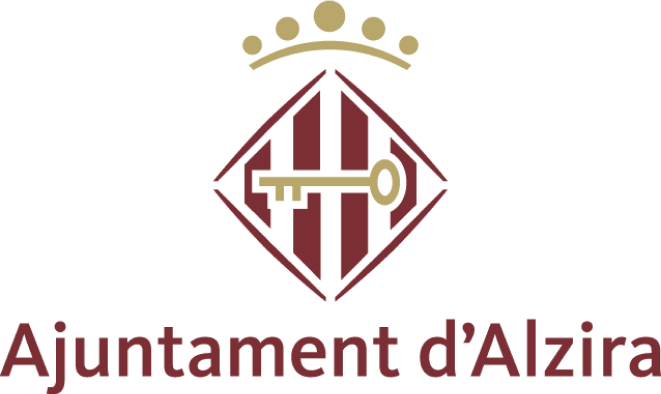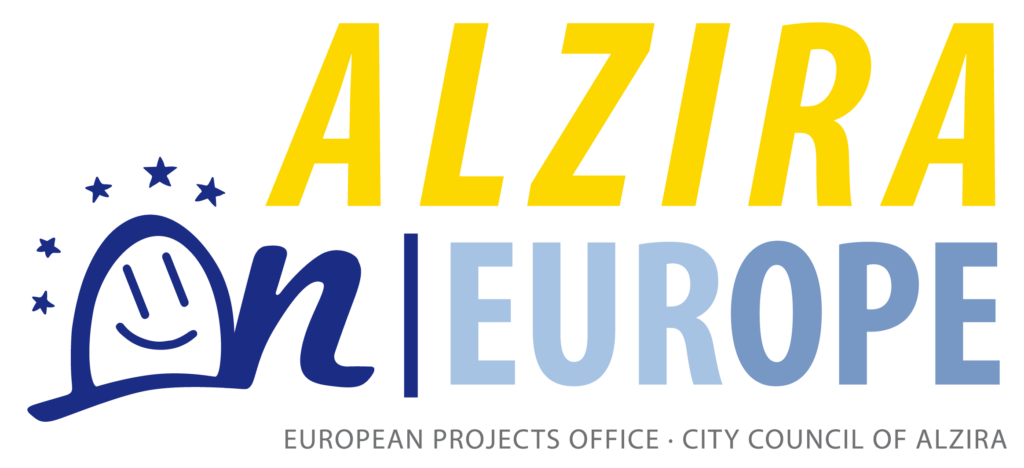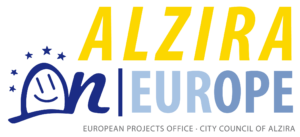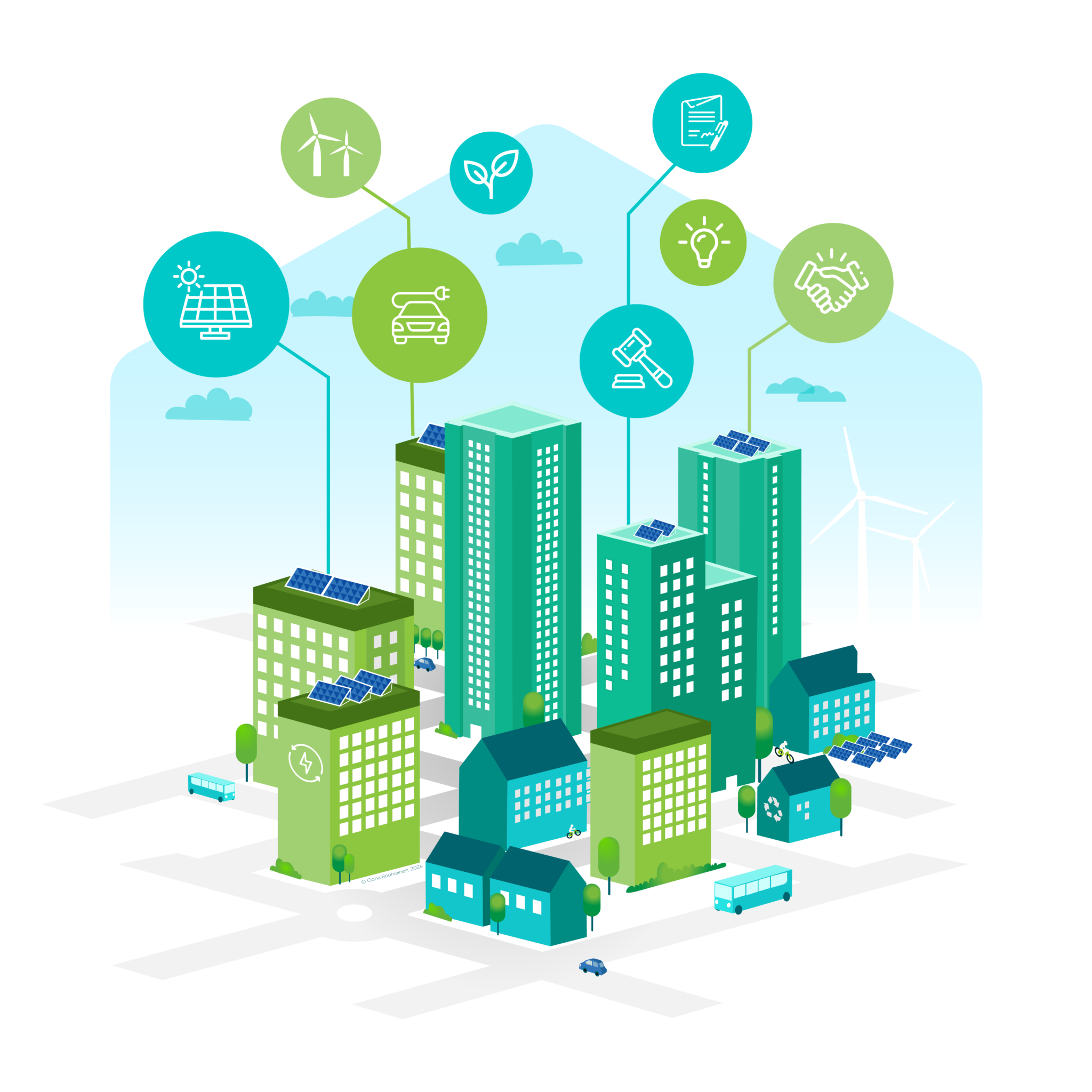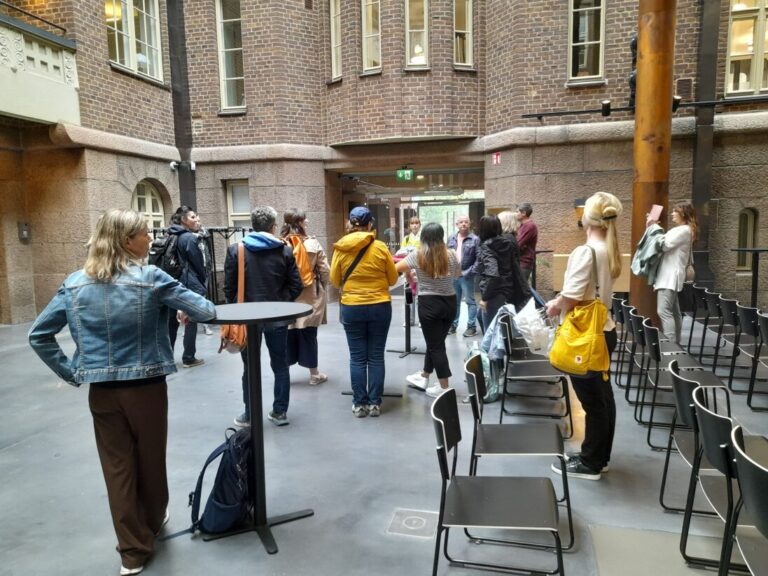ClimateGO
Pathways to Climate-Smart Governance
ClimateGO supports regions and cities in developing better policies for climate-smart and resilient governance. Its main goal is to enhance the capabilities of administrative bodies and policymakers to create effective climate-smart and resilient policies, as well as to improve their ability to implement these policies successfully. Through promoting comprehension and awareness, ClimateGO aims to ensure proactive decision-making where mitigation and adaptation measures support each other.
ClimateGO brings together seven partners from six European cities and regions with expertise and desire to change policies to support climate resilience in governance according to EU goals. The project partnership includes different levels of climate governance development and a mix of policy instruments that allows sharing and learning. The project also develops regional cooperation among stakeholders.
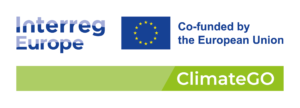
PROJECT’S START DATE: 01/04/2024
PROJECT’S END DATE: 30/06/2028
TOTAL BUDGET: 1.491.245 €
Objectives:
As a result of ClimateGO the partners and their stakeholders will be better equipped to develop and implement effective climate policies, and adaptation to climate change measures.
Activities:
The project activities involve two main aspects: the collaborative development of policies and the analysis of regional policy landscapes to identify good practices in climate-smart governance.
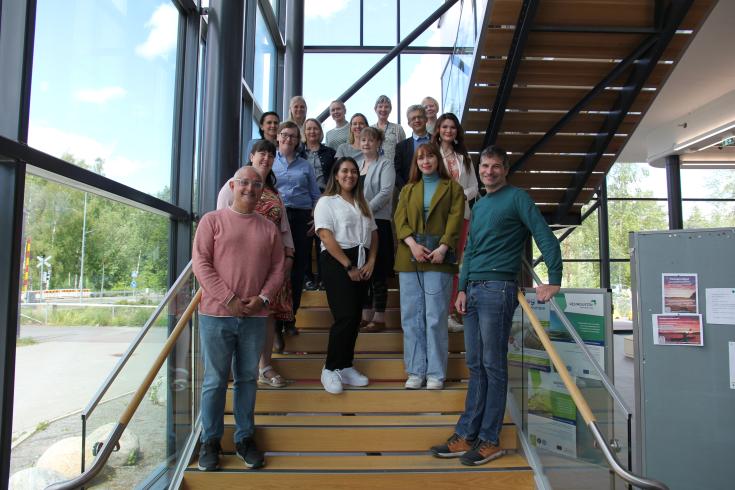
Summary: 1st ClimateGO Interregional Meeting in Lahti, Finland
The inaugural interregional meeting of the ClimateGO project, “Pathways to Climate-Smart Governance,” was held in Lahti, Finland, on June 11–12, 2024. Representatives from six European regions (Alzira, Podravje-Maribor, Grenoble, Waterford, Košice, and Päijät-Häme) gathered to discuss regional climate policies and governance. Hosted by LAB University of Applied Sciences and the Regional Council of Päijät-Häme, the meeting focused on strengthening administrative and policymaker capabilities to implement effective, climate-resilient strategies.
Key Insights and Challenges:
- Common issues include slow decision-making processes and maintaining policy continuity.
- Stakeholder engagement is vital for sustained climate action across administrative terms.
- Shared challenges require tailored regional solutions.
Good Practices
The event showcased Lahti’s transformation from an industrial hub to the European Green Capital (2021), emphasizing practical examples like recycling 99% of waste during city hall renovations. Participants also learned about the «Climate Walks» concept, which provides concrete guidance on climate-smart decisions, alongside tools developed in ERDF-funded projects such as «Pilot Green» and «Steps to Prepare for Climate Change.»
The project continues with regional cooperation activities, with the next interregional meeting scheduled for early 2025 in Košice, Slovakia, focusing on practical climate policy implementation.
First Step: Presentation of the Alzira project
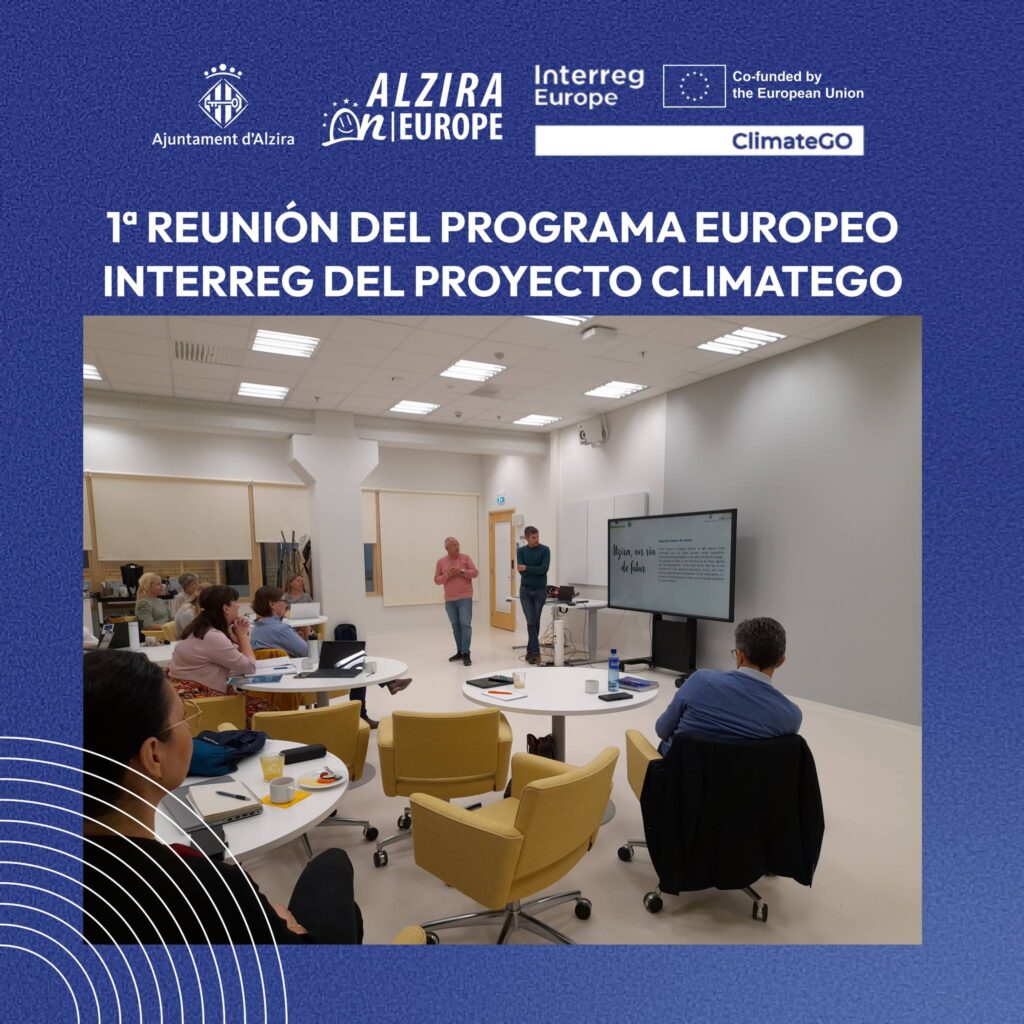
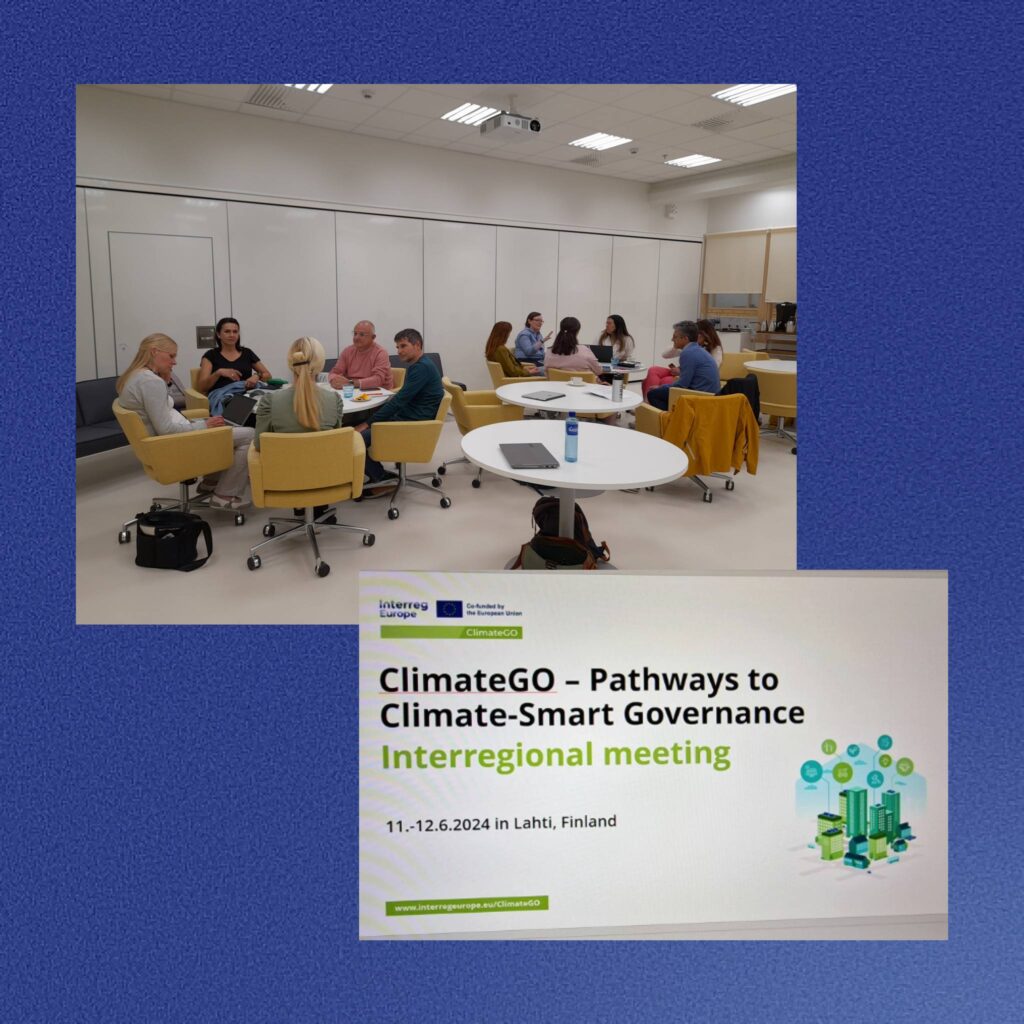
Second Step: Lahti, a Successful City
ClimateGO project’s 1st Interregional meeting was held in Lahti, Finland. The two summery days were full of discussions about the current state of climate smart governance, challenges, and possible solutions identified in partner regions. As an example of a success story Elina Ojala and Laura Matkala from the city of Lahti presented how Lahti has manage to get climate plans into action. We also had a nice climate walk along the storm water management system in Hennala district conducted by storm water specialist Juhani Järveläinen from the city of Lahti. Thank you for your active participation Aletvia Solorio Real Norbert C. Gráinne Kennedy Lisa Grant Tanja Senekovic Želmíra Blichová Jan Dzurdzenik Jose Manuel Gonzalez Valls Pau Sapiña Clar Maarit Virtanen Sanna Tuominen Milla Ojala Katerina Medkova Kaisa Tuominen Essi Malinen-Lallukka Johanna E. Jaana Järvenselkä Riitta-Maija Hämäläinen Anna Claudelin Susanna Vanhamäki Marjut Villanen Hanna Suutari Interreg Europe #regionalcouncilofpäijäthäme #LABfinland
Third Step: Sharing Experiences with Climate Policies
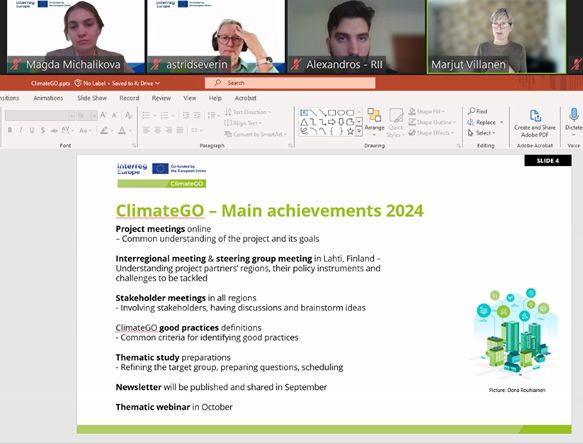
Fourth Step: Meeting of Regional Stakeholders
The European project office of Alzira led the first meeting of regional stakeholders of the ClimateGo project. In this meeting, the following entities participated: the Regional Ministry of Agriculture, Rural Development, Climate Energy and Ecological Transition, the Valencia Climate and Energy Foundation, the Mancomunitat Camp del Turia, the Polytechnic University of Valencia (IIAMA), the Centre for Environmental Studies of the Mediterranean, the Provincial Council of Valencia, the Valencian Federation of Municipalities and Provinces, and the Global Nature Foundation.
The meeting strengthened cooperation among all participants to address the challenges of climate change.
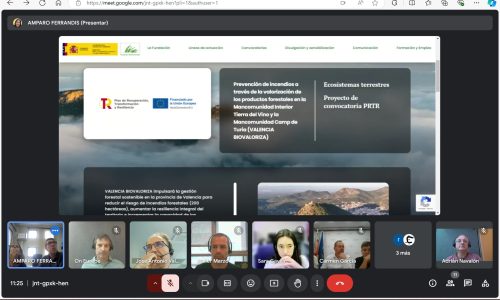
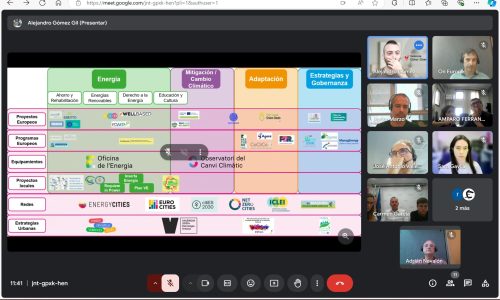
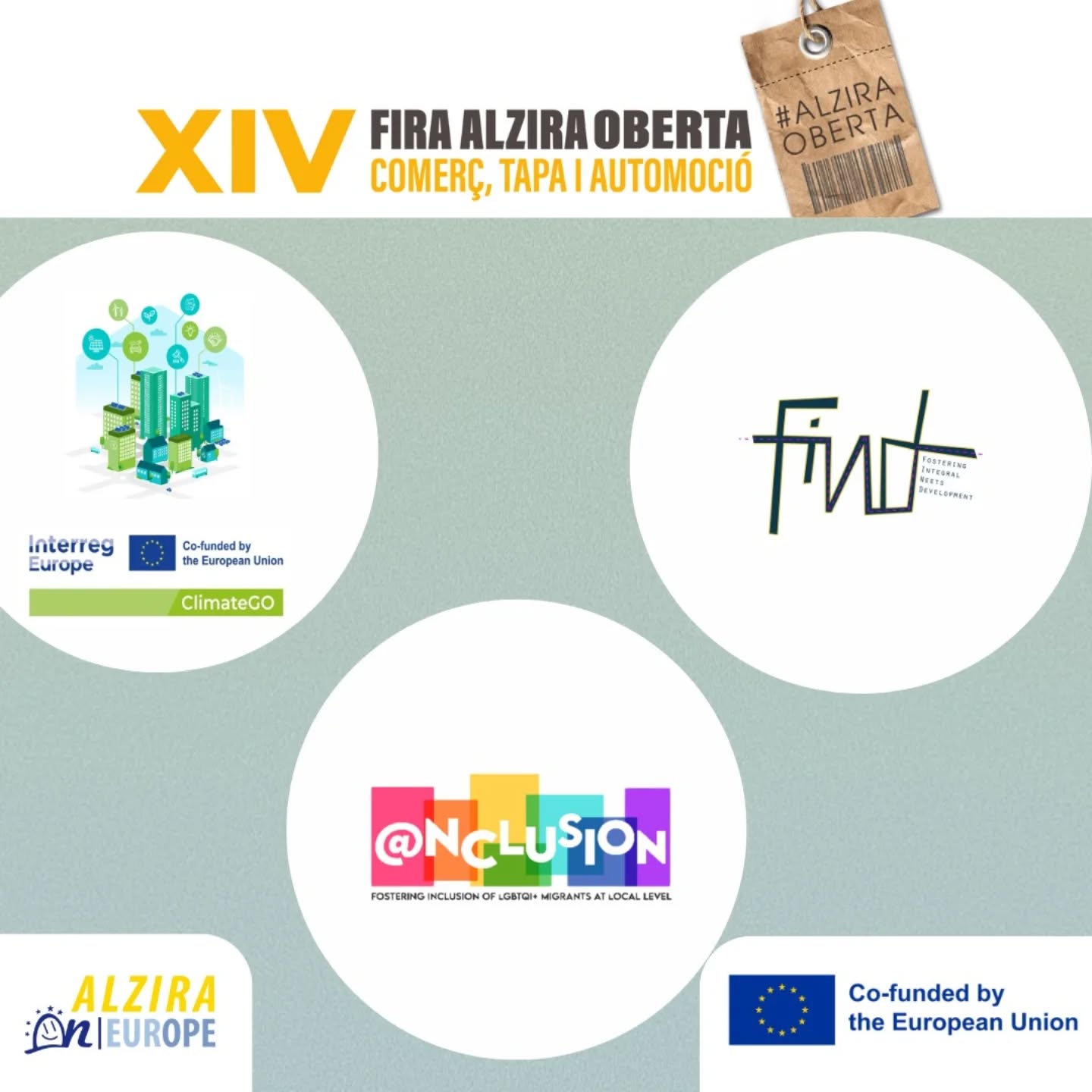
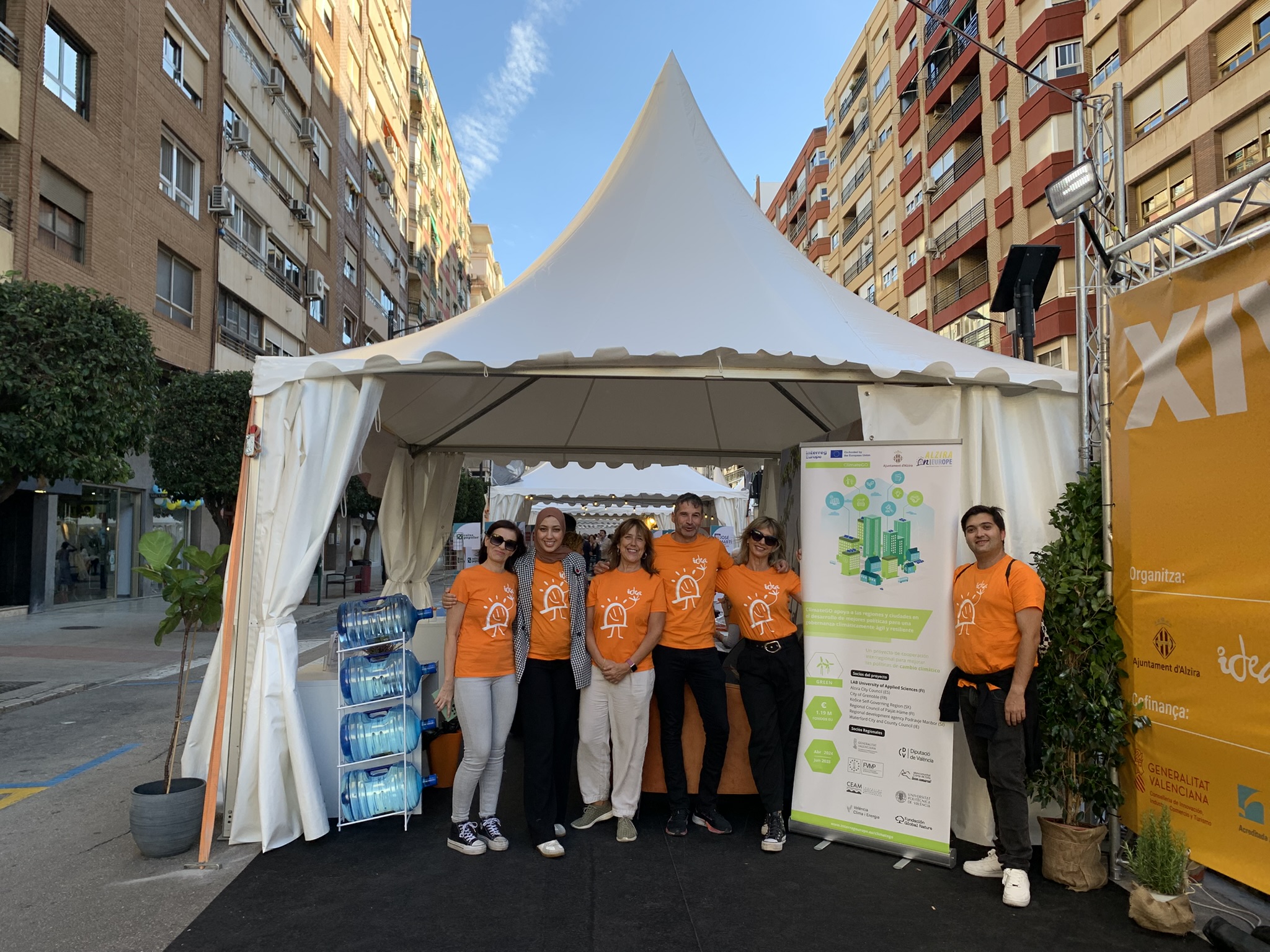
Highlights from the 14th Alzira Open Fair
On October 18, 19, and 20, the 14th Alzira Open Fair took place, an event that welcomed over 50,000 attendees, making it one of the most important fairs in the Valencian Community. We had the honor of participating and presenting three of our ongoing projects:
- @nclusion: focused on promoting the rights of migrants and LGTBI+ individuals.
- Climate Go: dedicated to developing and implementing effective climate policies and climate change adaptation measures.
- Find: a mobility and social inclusion project aimed at integrating young people facing challenges with social integration
Leading the fight against climate change
This week, Alzira proudly welcomed MEPs from the Greens/European Free Alliance Group, including Vicent Marzà and Bas Eickhout, to showcase the city’s groundbreaking climate adaptation strategies. 🌧️💧
🔹 Key Highlight: The delegation visited the Basses Interceptor Channel, a vital infrastructure that has protected Alzira from severe flooding, earning praise for its innovative and effective urban planning.
🔹 Mayor’s Message: Mayor Alfons Domínguez emphasized Alzira’s commitment to investing in prevention and leading by example in sustainable governance.
💪🌱 Alzira continues to inspire with bold steps toward a greener, safer future for all!
#ClimateChange #Sustainability #Alzira #GreenEurope #CambioClimático #Sostenibilidad #EuropaVerde #InterregEurope #climateGo
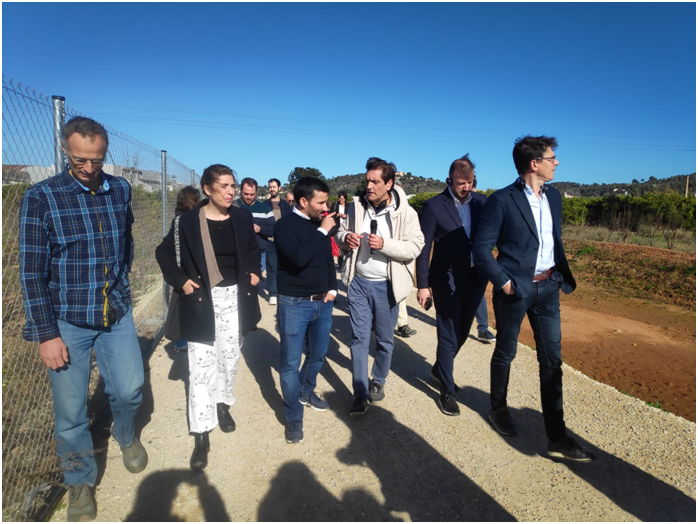
Leading the fight against climate change
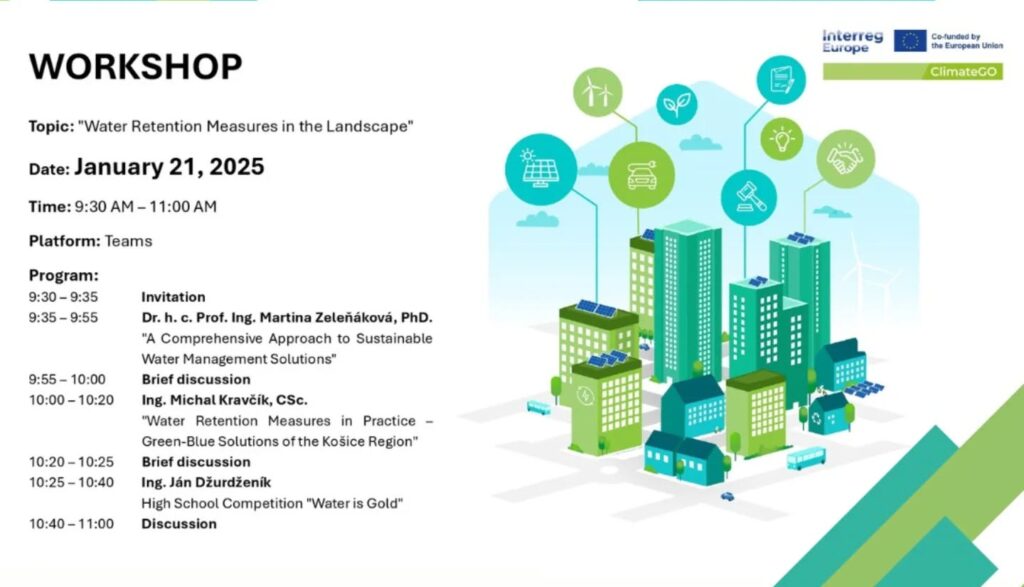
Online workshop on the topic of «Water Retention Measures in the Landscape», which will take place on January 21, 2025, from 9:30 AM to 11:00 AM on the Teams platform.
Workshop Program:
9:30–9:35 → Invitation
9:35–9:55 → Dr. h.c. Prof. Ing. Martina Zeleňáková, PhD. «A Comprehensive Approach to Sustainable Water Management Solutions»
9:55–10:00 → Brief discussion
10:00–10:20 → Ing. Michal Kravčík, CSc. «Water Retention Measures in Practice – Green-Blue Solutions of the Košice Region»
10:20–10:25 → Brief discussion
10:25–10:40 → Ing. Ján Džurdženík High School Competition «Water is Gold»
10:40–11:00 → Discussion
#GestiónDelAgua #Sostenibilidad #CambioClimático #RetenciónDeAgua #SolucionesVerdeAzul #InnovaciónSostenible#ConservaciónDelAgua#EducaciónAmbiental#AguaEsVida #TallerOnline #MedioAmbiente #KošiceRegion #UnFuturoSostenible #AguaEsOro
Strengthening Climate Resilience: ClimateGO Partners Meet in Košice
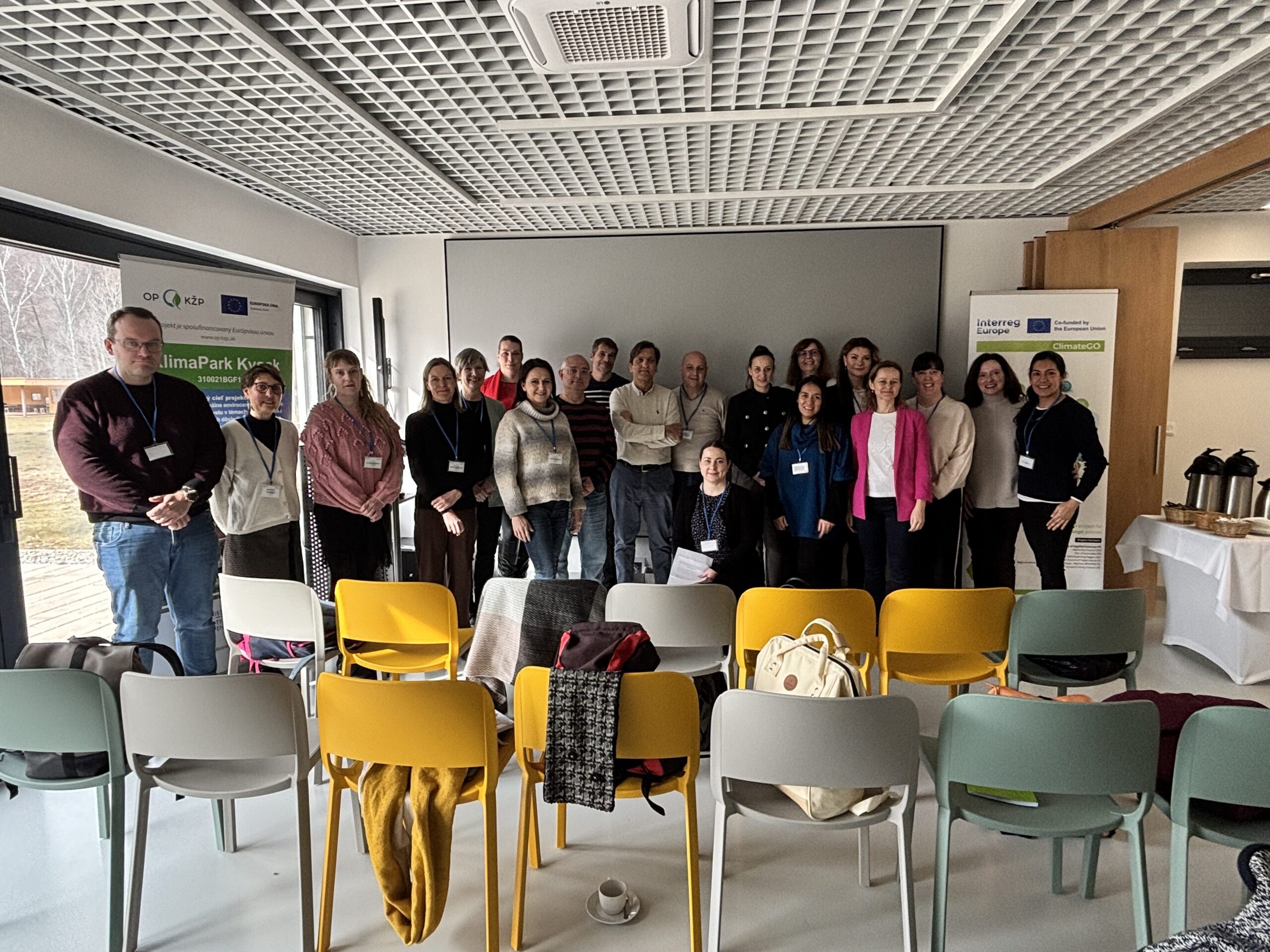
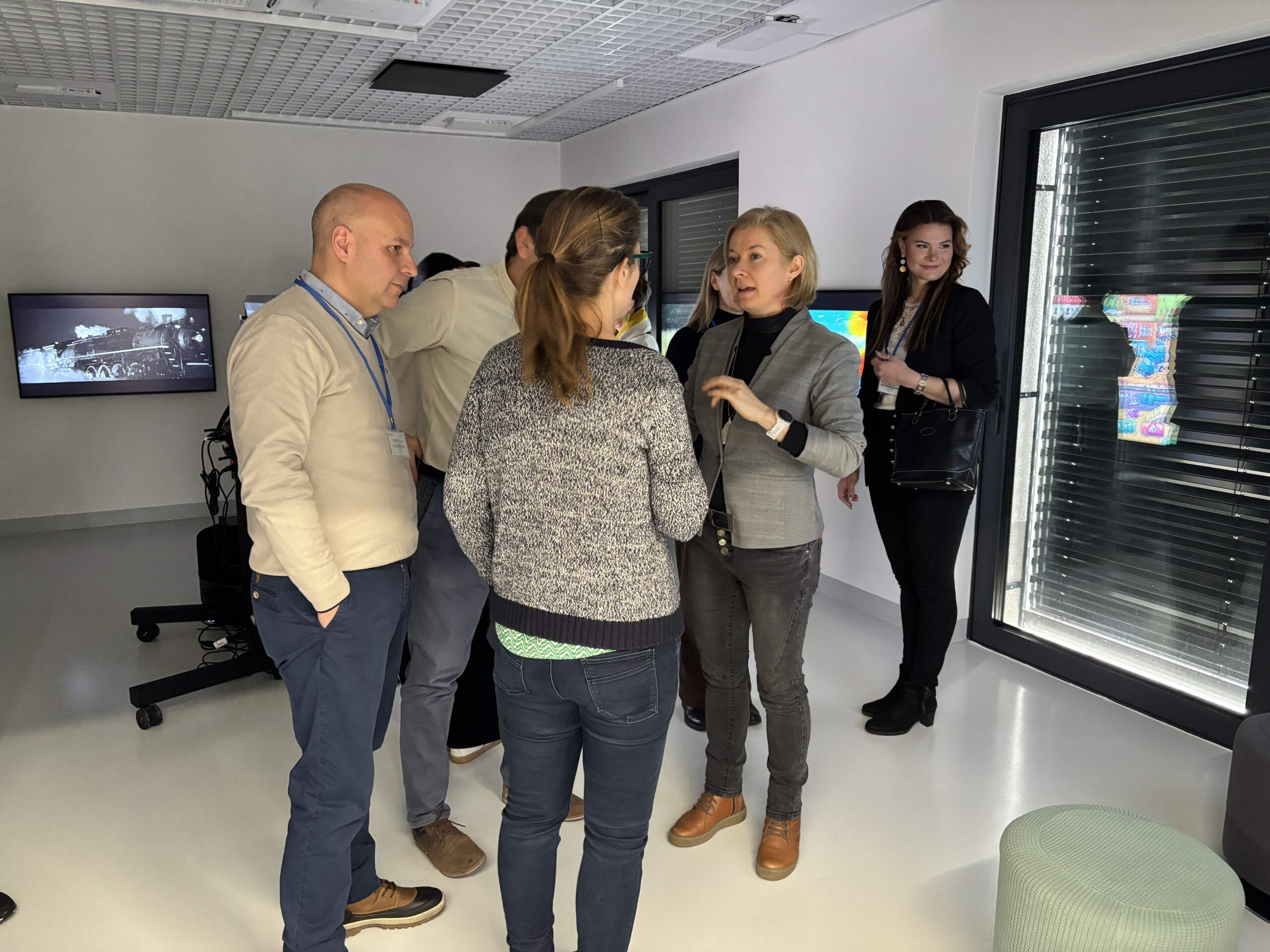
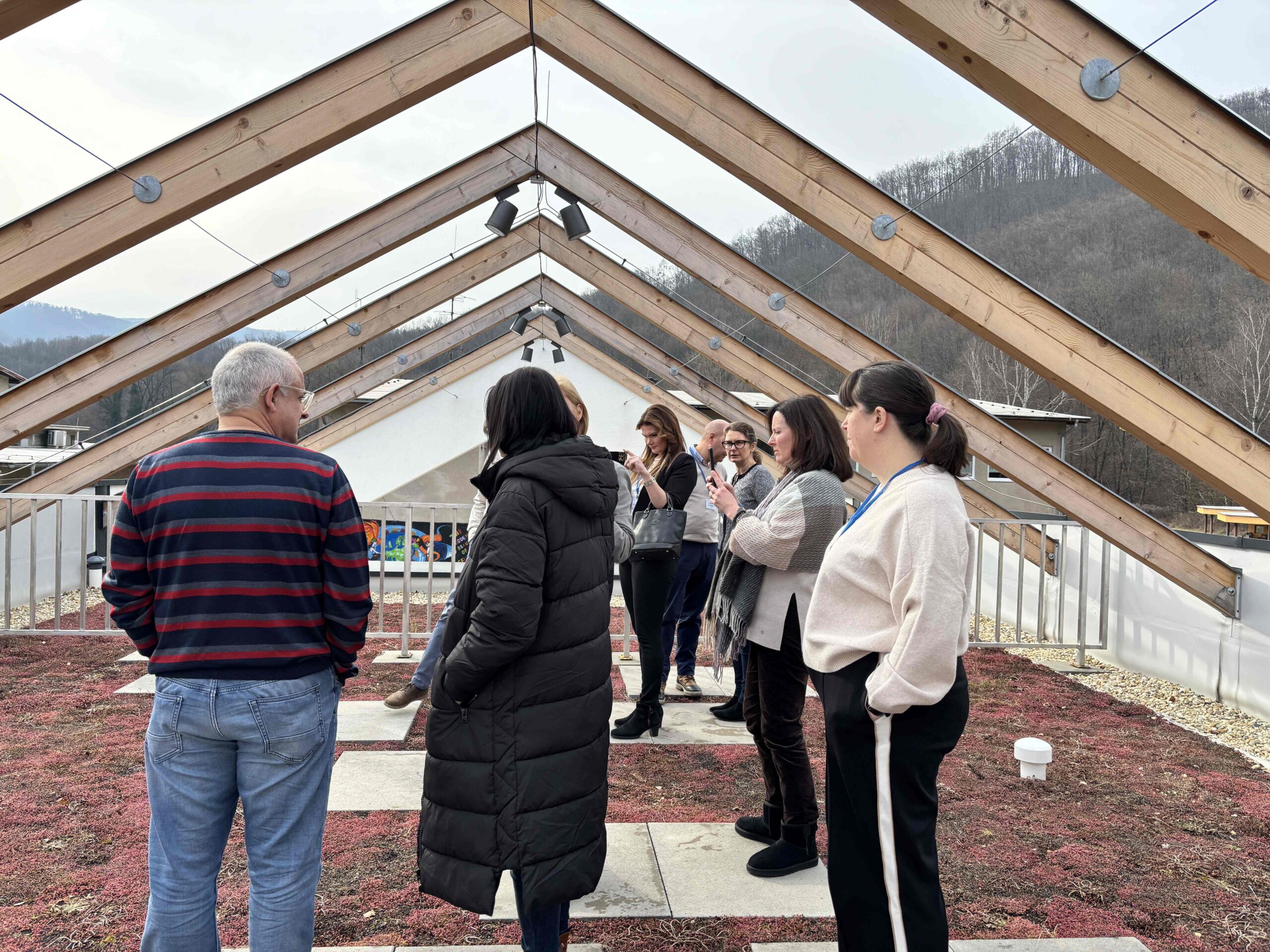
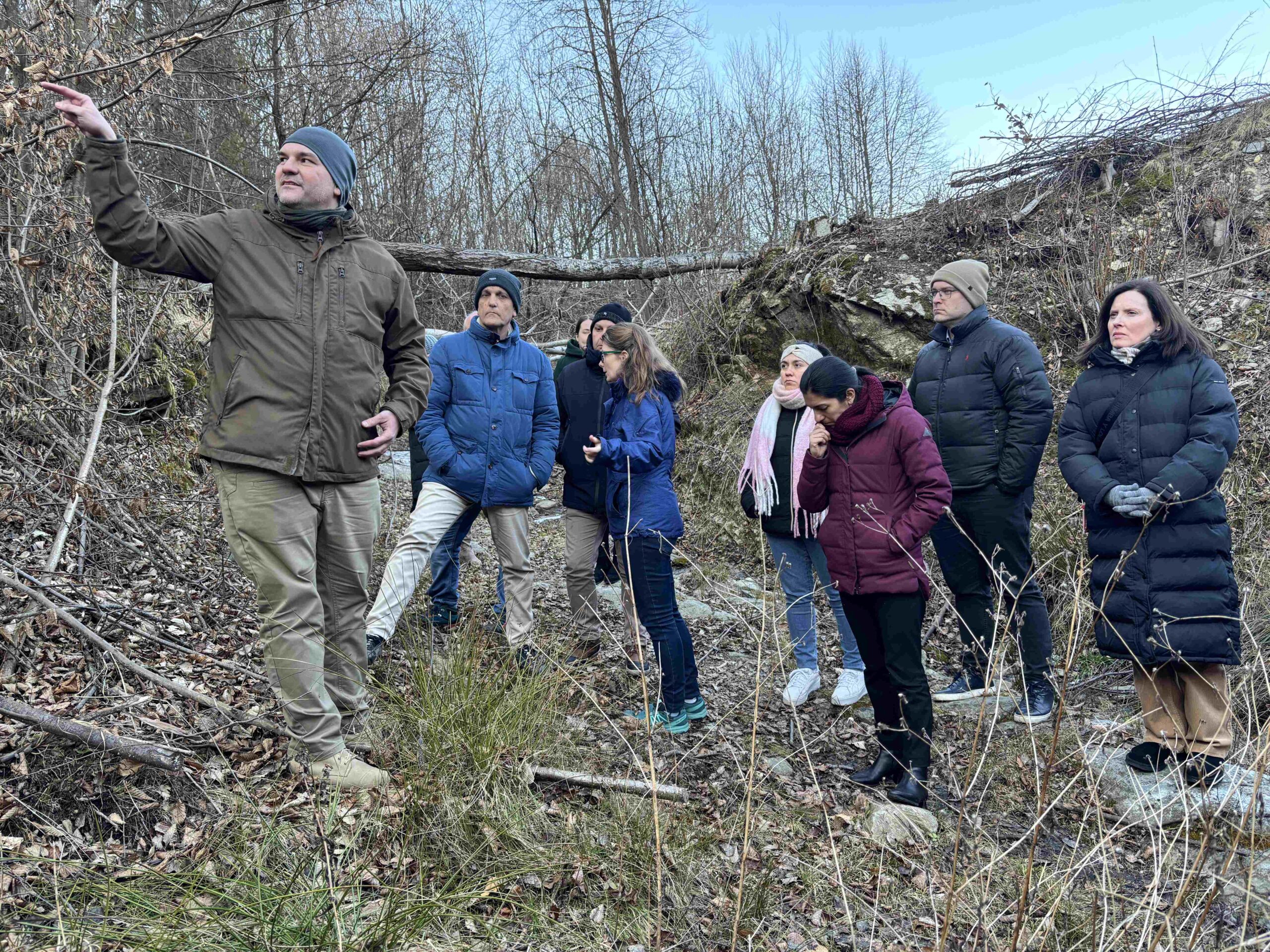
A delegation led by the mayor of Alzira, Alfons Domínguez, and the councillor of public infrastructures, Vicent de la Concepción, visited the city of Košice in Slovakia.
During the visit, the project updates and best practices being carried out to tackle climate change were presented. Our partners were also informed about the damage caused by the recent DANA storm in the province of Valencia and in Alzira, highlighting the importance of climate resilience strategies to prevent and mitigate these impacts.
From water retention solutions to biodiversity restoration and the importance of environmental education, we have seen firsthand how regional initiatives can make a difference. Collaboration and knowledge exchange are key to strengthening climate governance and ensuring a more sustainable future.
We would like to thank our partner for their hospitality and for the excellent organization of the event. It has been an enriching and highly productive experience for all of us.
WE KEEP MOVING FORWARD TOGETHER!

More About Interreg Europe
Interreg Europe is an interregional cooperation programme, co-funded by the European Union. The European Union strives to reduce disparities in the levels of development, growth and quality of life in and across Europe’s regions. Our programme contributes to this objective and runs from 2021 to 2027.
We have a budget of MEUR 379 to help local, regional and national governments across Europe to develop and deliver better policy. We create an environment and opportunities for sharing solutions to regional development issues. We support the exchange of good practices and policy learning among European regions in 29 countries – the EU27, Norway and Switzerland.
Interreg Europe • Interreg.eu

